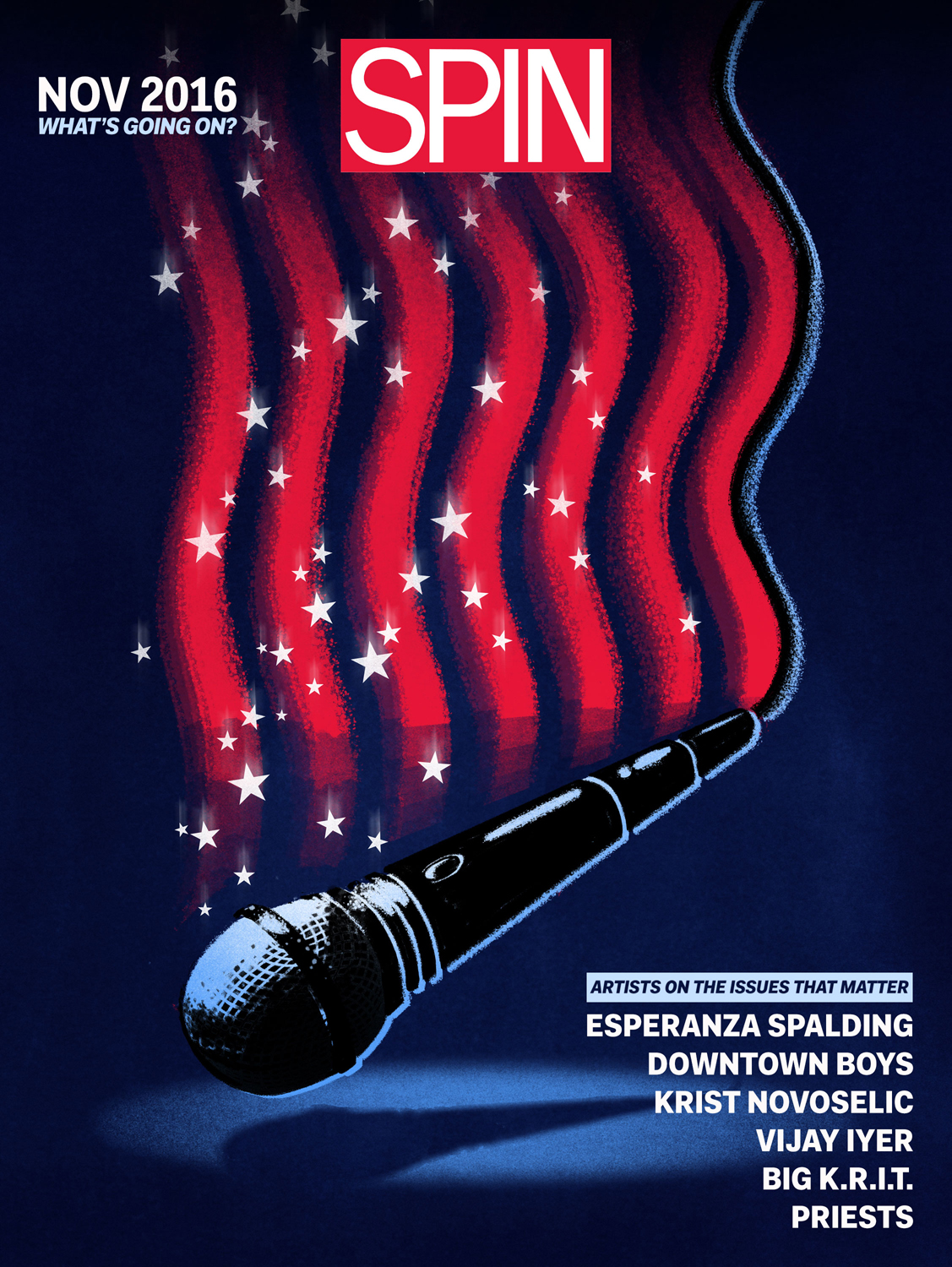With the most important election of this generation looming–and the conversation around the ethics, corruption, morality, and overt xenophobia associated with the presidential campaigns continuing to heighten–SPIN asked politically-minded musicians to speak on issues that matter. For November’s digital cover story, these artist op-eds will look at police brutality, racial profiling and identity, immigration, welfare reform, and more, to ask: What’s going on?
For more than 20 years, I have been advocating election reform. I advocate voting methods that offer citizens more choices, voices, and power. This advocacy is to help solve gerrymandering and get rid of wasted votes. Gerrymanders leave us with no choice but a rubber stamp for the incumbent. As a result, there are millions of Americans who have never had the chance to vote in a congressional election where their vote matters.
We need to take power away from the political insiders who draw crazy-shaped districts to suit themselves, and give that power to the voters. As an example: Our cities are full of Democrats and other like-minded voters. These winner-take-all districts are lopsided, and the result is millions of wasted votes. It’s common to hear talk about wasting votes on third-party candidates, but if you live in a district packed with like-minded voters, your vote is likely wasted as winning candidates get far more votes than is needed to win. Those votes basically land in a surplus pile once they’re not actively needed to win a race.
In 2012, a Seattle Democratic winner for the House of Representatives won over 70 percent of the vote in an election with 80 percent turnout. In the district where I live, that was drawn for Republicans, Democrats won over 40 percent of the vote and got nothing. It’s a perfect example of how votes go to waste, and it will happen again during this election because gerrymanders get their power from this system. It’s a zero-sum game--one where you lose and I win, but with political insiders predetermining the outcome.
What I advocate for is another system--the American form of a proportional representation voting system. FairVote, the national election reform group I work with, defines proportional representation as “fair representation voting.”
[caption id="attachment_id_214768"]  Illustration by Tara Jacoby[/caption]
Illustration by Tara Jacoby[/caption]
Proportional representation is how most countries in the world elect their governments. It is not a parliamentary system. In the United States it is candidate-based, and this is an alternative to the winner-take-all rules we to tend use here that results in gerrymandering. Instead of choosing winners and losers before an election, the system gives groups of voters their share of seats in government.
This kind of voting does not put us in political blue or red boxes.
Instead of a district where one person represents everyone, there would be a new district with three representatives. It would take 25 percent of the vote to win a seat. (In most places in our country, voters could elect districts with two Democrats and one Republican, or two Republicans and one Democrat.) There is also space for third parties and independents. With the current polarization of politics hurting our country, these changes would promise to produce more moderates. We could elect urban Republicans and rural Democrats, and independents and new parties.
In countries with proportional representation, you will never hear someone tell you that you are wasting your vote, or that you are spoiling the election. Representation is shared--most groups of voters can get their share of seats in government. Majority rule is respected, but the minority can still have a voice. If you pay taxes and are subject to the laws of the land you should have someone speaking for you in government--fair representation gives you that.
This kind of fair voting is also found in the Voting Rights Act. More than 100 cities in the U.S. use this kind of voting to remedy things like racially polarized voting. If we used this voting system for our national elections, bad things like gerrymandering and issues with race and redistricting would mostly go away. Political and racial minorities would be able to elect a candidate of their choice if that candidate gets enough votes.
This year, chances are that you are wasting your vote in your U.S. House election no matter how you vote. Let’s make this the last election where this is even possible.
Krist Novoselic is a founding member of Nirvana, and has performed with such bands as Foo Fighters, Flipper, and Eyes Adrift. He currently sits on the board of FairVote, a nonprofit that advocates for electoral reform in the United States.



